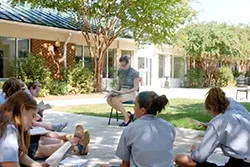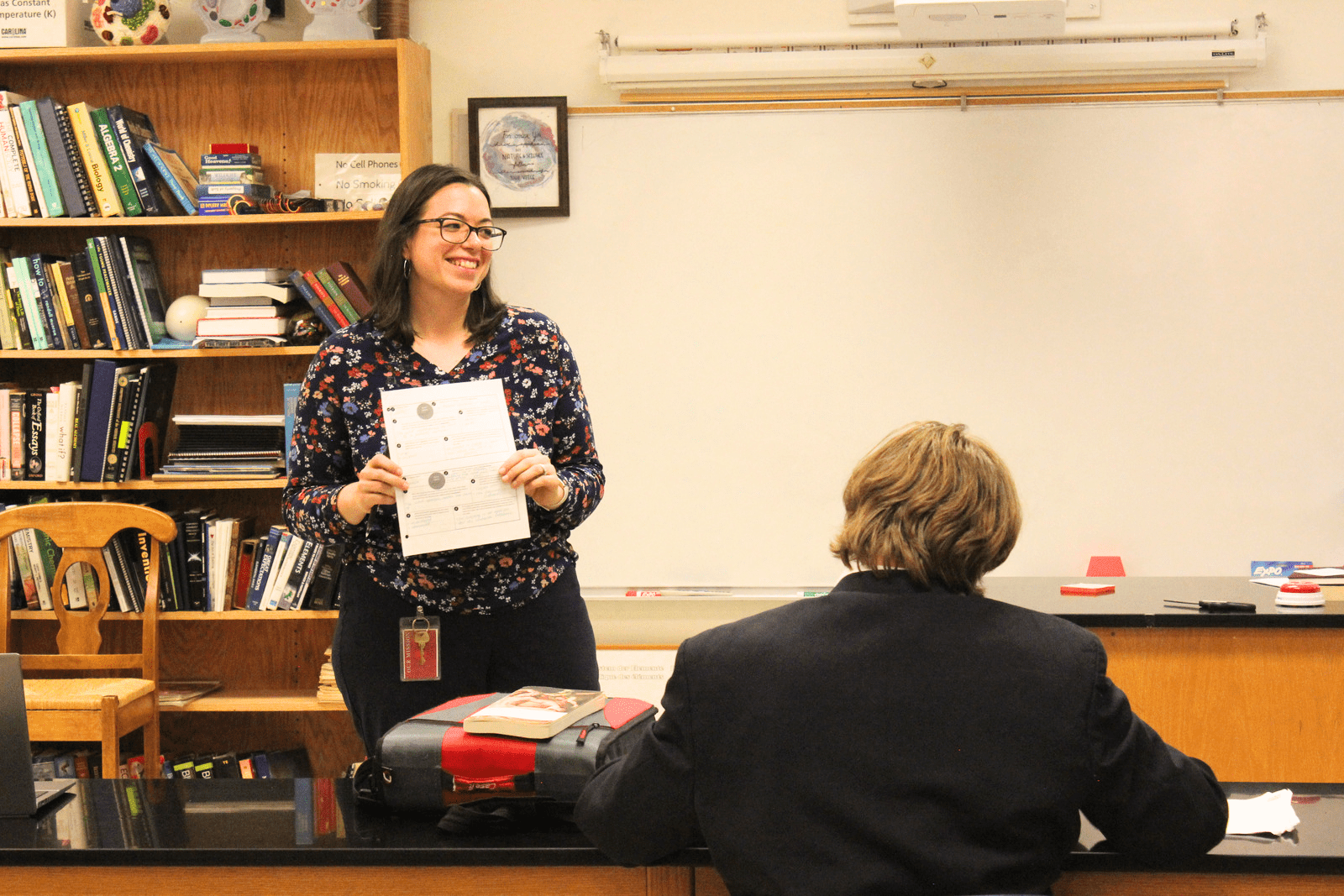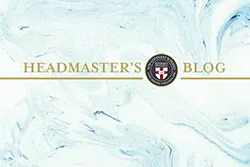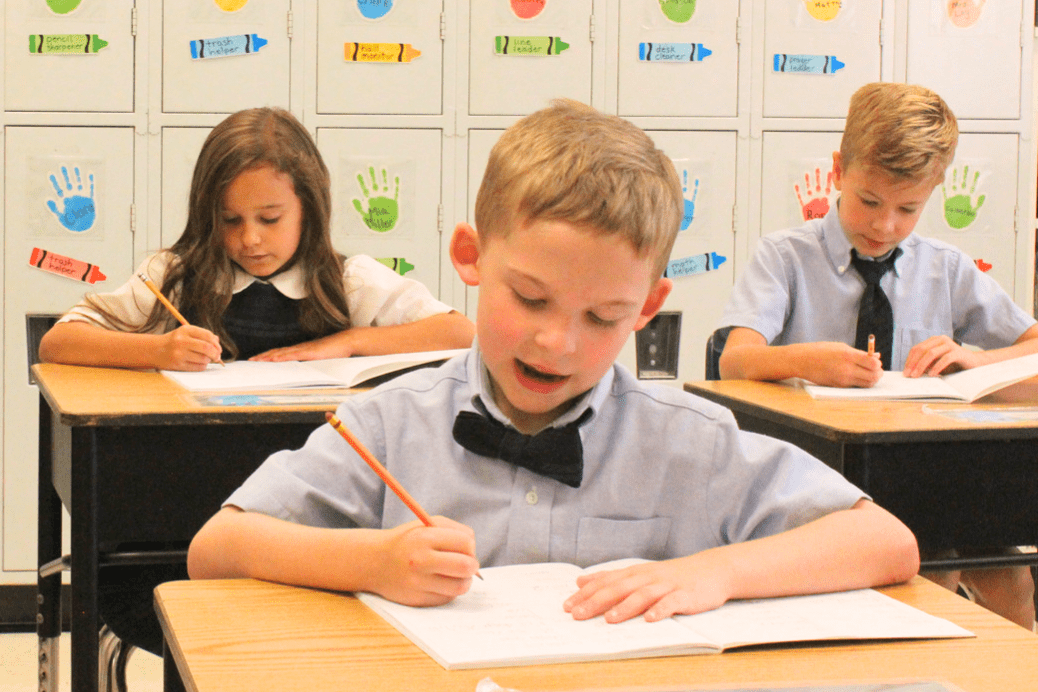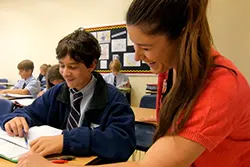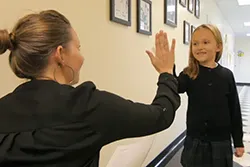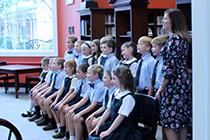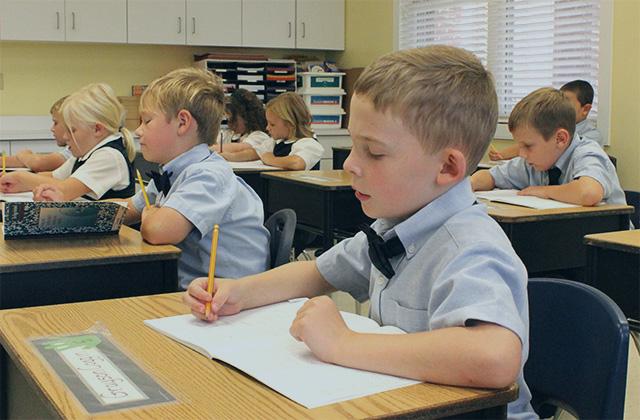During tours or admissions interviews I am often asked how our teachers handle discipline in the classroom. I always welcome the question. Parents are usually looking for clarity on our methods and approach when children need correction, but this is a very small part of discipline.
The word “discipline” is related to the word “disciple,” and as such, we should understand correction in the larger context of making a disciple of Jesus. The first thing, therefore, is that the New Covenant classroom and the broader campus community is governed by a shared set of values and moral commitments, chief among which are honesty, integrity, honoring parents and elders, and treating one’s classmates as one would like to be treated. The Ten Commandments are clearly taught in classrooms and chapel. Classrooms are structured with particular rules that reflect these values, and clear expectations and boundaries are set forth from the first days of school.
We are not concerned, however, with merely obeying rules. Christian discipleship is not reducible to behavior modification. We are more concerned with a child’s heart, teaching a child what to love and what to value. It is important that we always articulate the moral reason “why” so that children connect their actions to the larger moral picture. Scripture equates correction with sustained teaching: “A fool despises his father’s instruction, but he who receives correction is prudent.” (Proverbs 15:5 NKJV)
It is vital that the environment of the classroom and the daily routines of school are predictable. The rule/reward system should be clear to a student, and it should be perceived not only as fair, but fairly enforced. Predictable routines repeated over and over yield the benefit of habits, habits that become ingrained in a student, and in many cases begin to show up in places outside of school. (I have been told many times that, because of their good behavior, New Covenant students are identifiable in other contexts where they gather with friends, from birthday parties to youth groups.) Discipline is therefore a largely positive endeavor. It is concerned with habits of the heart which, over time, inform character and lead to self-discipline. With sustained practice a student begins to develop sensibilities, such as the ability to discern what is appropriate in a given situation even when a moral choice is not immediately in view.
So, back to the question that parents really want to know. What happens when a child needs correction, as they inevitably will? In cases where students trespass a boundary, teachers are first mindful that in addressing a child, no matter what the offense, a student’s dignity should remain intact. Gentle correction in which a young student turns his “light” from green to yellow, often serves as tactile warning, letting a child know that he needs to practice self-governance. A “red light” will prompt a conversation with the teacher, and may issue in a visit to the Principal, and sometimes, though rarely, the Headmaster. In all serious cases, addressing a student privately is to be preferred.
Discipline often entails sanctions, a response that is decidedly negative for a student in the moment. When such consequences are imposed, they must be offered in a supremely supportive manner. Teachers must make it clear to children and young people that they are loved and that their actions have consequences for themselves and others. In the moment, as Scriptures teaches, “no chastening seems to be joyful, but painful; nevertheless, afterward it yields the peaceable fruit of righteousness to those who have been trained by it.” (Heb 12:11 NKJV) This can be painful for parents, too, who are sometimes embarrassed or appalled at the actions their beautiful children managed to commit. It’s alright to feel this way, but be sure to support your child’s teacher and avoid making excuses for bad behavior.
Christian discipleship has as its goal a “long obedience in the same direction.” Parents should be confident that such training is taking place every day in our classrooms.









